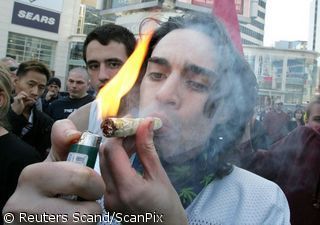Since 1993, the EU has provided the republic with 153 million euros (US $182 million) worth of humanitarian aid.
Published:
16 February 2005 y., Wednesday
Made up of an ethnic mix of Tajiks, Uzbeks and Russians, in 2004 Tajikistan experienced a further relative improvement in its overall humanitarian situation. International donor support remained strong - reaffirmed at a conference in London in February - but with a noticeable change of emphasis towards greater long-term development assistance to the mountainous nation and less on humanitarian aid.
Mirroring this trend, in May, the Humanitarian Aid Office of the European Commission (ECHO) reaffirmed its plans to scale back humanitarian activities in Tajikistan over the next three years. Since 1993, the EU has provided the republic with 153 million euros (US $182 million) worth of humanitarian aid.
But huge needs remain. Poverty has driven approximately 1 million Tajiks to seek better fortunes abroad, primarily in Russia. Over 83 percent of the population live below the national poverty line. A full 17 percent of the country's 6.3 million population is considered destitute. Food insecurity - particularly in rural areas - remains a key humanitarian issue.The education and healthcare systems continue to deteriorate, worsening the prospects for current and future generations.
The UN World Food Programme (WFP) continued to assist Tajikistan under its Protected Relief and Recovery Operation (PRRO), marking a transition from humanitarian relief to recovery and development in the country. "Tajikistan is a low-income and food-deficit country needing food assistance," the WFP country director, Ardag Meghdessian, told IRIN. "The shift of emphasis from relief to recovery indeed indicates increased stability in the country, as well as an improvement of the overall humanitarian situation," he said, adding that the devastating two-year drought in 2000 and 2001 was over.
Šaltinis:
irinnews.org
Copying, publishing, announcing any information from the News.lt portal without written permission of News.lt editorial office is prohibited.
The most popular articles
 75 years after Moscow first opened its underground train system, Muscovites can ride a restored vintage train.
more »
75 years after Moscow first opened its underground train system, Muscovites can ride a restored vintage train.
more »
 A glacier melt threatens to cause massive flooding and destroy a centuries old monastic fortress in the remote country of Bhutan.
more »
A glacier melt threatens to cause massive flooding and destroy a centuries old monastic fortress in the remote country of Bhutan.
more »
 What do countries as geographically diverse as Saudi Arabia, Uganda and Jamaica have in common? All of them criminalised homosexuality.
more »
What do countries as geographically diverse as Saudi Arabia, Uganda and Jamaica have in common? All of them criminalised homosexuality.
more »
 Human rights is a key issue for the European Parliament and MEPs Monday took a first look at what the European Union did last year, when they discussed the EU annual report on human rights in the world.
more »
Human rights is a key issue for the European Parliament and MEPs Monday took a first look at what the European Union did last year, when they discussed the EU annual report on human rights in the world.
more »
 Researchers found high levels of mecury in a Japenese dolphin-hunting town, but say the mecury has no ill effects.
more »
Researchers found high levels of mecury in a Japenese dolphin-hunting town, but say the mecury has no ill effects.
more »
 Crowds of Mexicans marched peacefully through the capital city on Saturday demanding the legalisation of marijuana.
more »
Crowds of Mexicans marched peacefully through the capital city on Saturday demanding the legalisation of marijuana.
more »
 Prisoners are reported to have dramatic improvements in behaviour after pets are introduced in a new scheme.
more »
Prisoners are reported to have dramatic improvements in behaviour after pets are introduced in a new scheme.
more »
 Israeli Ultra-Orthodox MPs are lining up against activists proposing a total ban on furs, saying traditional fur hats are an important part of their religious tradition.
more »
Israeli Ultra-Orthodox MPs are lining up against activists proposing a total ban on furs, saying traditional fur hats are an important part of their religious tradition.
more »
 EU Member States should organise social protection, including at least 14 weeks' maternity allowance, for self-employed women and self-employed men's wives or life partners, in accordance with national laws, said the Women's Rights Committee on Tuesday.
more »
EU Member States should organise social protection, including at least 14 weeks' maternity allowance, for self-employed women and self-employed men's wives or life partners, in accordance with national laws, said the Women's Rights Committee on Tuesday.
more »
 How are the European Parliament, the European Commission and other parts of the European Union supposed to interest people and explain their work?
more »
How are the European Parliament, the European Commission and other parts of the European Union supposed to interest people and explain their work?
more »